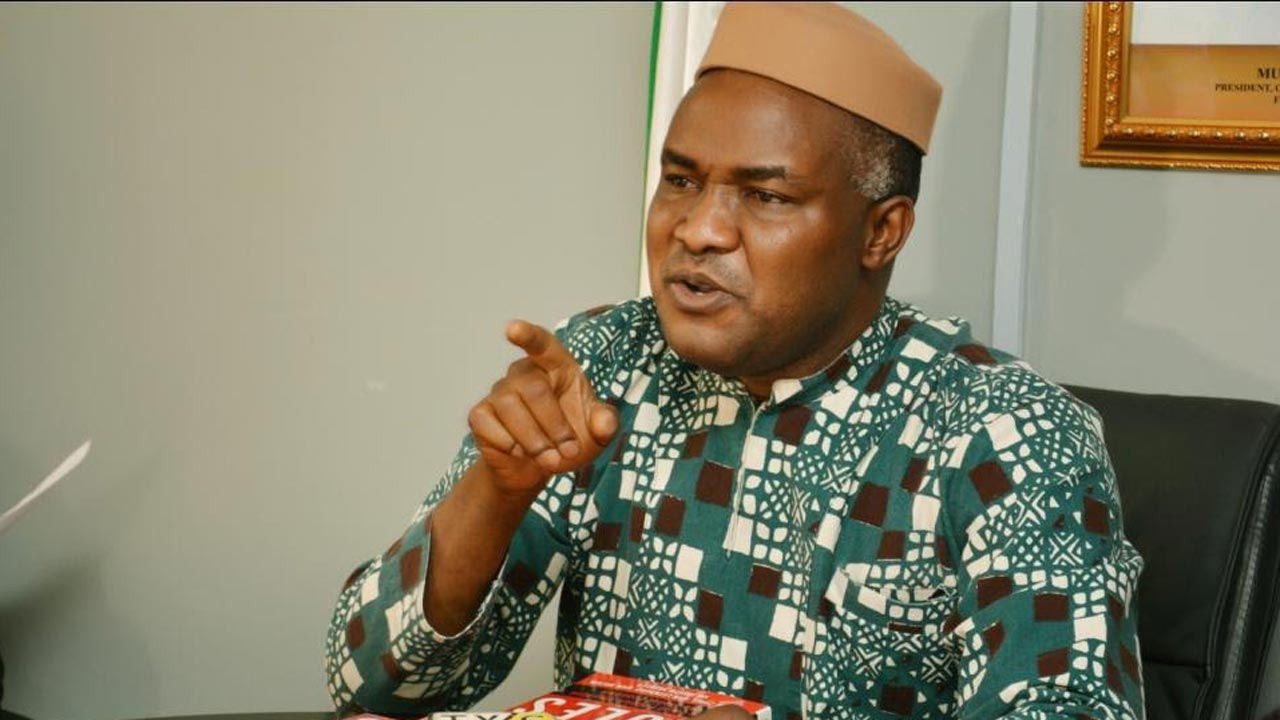
The Human Rights Writers Association of Nigeria, HURIWA, has reacted to President Muhammadu Buhari-led Federal Government’s proposed Ruga farm settlements for herdsmen across the country.
It asked the Buhari-led Federal Government to opt for fairness, equity and equality of rights for all ethno-religious affiliations as a way of ensuring restoration of peace and stability in Nigeria.
Buhari government had disclosed that it was working towards establishing “Ruga Settlements” for herdsmen in 12 pilot states nationwide.
Mohammadu Umar, the Permanent Secretary in the Federal Ministry of Agriculture and Rural Development, made this known in Abuja on Tuesday.
He said that the farm settlements, when fully established, would address the incessant clashes between Fulani cattle rearers and farmers.
However, HURIWA criticized the Federal government for its opaque nature of working out a highly discriminatory settlement policy to benefit only the Fulani speaking ethnicity amid ballooning poverty, crises of underdevelopment and lack of economic opportunities which afflicts the over 350 ethno-tribal communities that make up Nigeria.
A statement by its National Coordinator, Comrade Emmanuel Onwubiko reads: “Government needs to even appreciate the import of the United Nations Vienna Declaration of 1993 which states thus:”all human rights are universal, indivisible, inter-dependent and inter-dependent and “democracy, development and respect for human rights are interdependent and mutually reinforcing”.
The Rights group reminded Buhari’s administration of an “outstanding case of unambiguous unfairness and injustice meted out to the largely unarmed Igbo speaking followers of the self determination group known as Indigenous peoples of Biafra (IPOB) proscribed by the government whereas the hierarchy of Miyetti Allah cattle owners known as MACBAN which actively supports armed fulani herdsmen is an ally of the Presidency.”
“It makes no sense for the Federal government to embark on an adventure of deception and deceits as a way of resolving the growing phenomenon of violence amongst the different ethnicity just as the Rights group expressed doubts on the workability of the one sided panacea of establishment of settlement for Fulani ethnicity whereas the real victims of the widespread blood cuddling herders’ violence – the farming communities all across the country are left to sulk their wounds unsympathetically. “What is goose for the goose is good for the gander.
“The unequal treatments of equals by the central government under Presidency of the Fulani born Muhammadu Buhari is at the core of the different ramifications of agitations threatening peace, security and stability of pur nation state. This fundamental injustice incubated and fertilized inside the Presidential villa and publicised as state policy is intrinsically and inherently unconstitutional”.
“Fairness, equity and equality of rights as clearly provided for in a plethora of constitutional provisions are the sine qua non for finding lasting, sustainable and effective mutual and harmonious solutions to the crises that have arisen due to the activities of suspected armed Fulani herdsmen targeting farming communities in the country”.
HURIWA blamed government at the center squarely for the “breakdown of law and order characterised by high crime rate and the widening spectre of armed kidnappings, banditry and dare devilish atrocities unleashed by freelance armed hoodlums all across the Country.”
The Rights groups said the “piecemeal approach” adopted by president Buhari whereby the government occasionally embarks on “secretive monologues with only representatives of Fulani ethnicity, cannot deliver the positive and constructive results expected to restore normalcy in the flash points of these incessant armed Fulani attacks.”
HURIWA therefore asked Buhari to adopt a “much more holistic, transparent and open mechanisms such as the convocation of a national security parley whereby credible and transparently chosen leaders of the various communities in Nigeria including the Fulani ethnicity and credible civil rights advocacy groups will meet for at least two days to brainstorm on the most workable panacea to the incessant attacks unleashed by suspected herders targeting farmers just as government must as a matter of legality, must arrest, prosecute and punish all the non-state actors responsible for these intermittent but vicious violence.”
“The Federal government can’t continue with the divide-and-rule approach that it has adopted but must open up to all the communities so a national funding platforms are created to provide palliatives to all the communities affected by the violence unleashed by armed herdsmen just as these flashpoints are located all across the six geopolitical zones of Nigeria,” it said.
HURIWA also faulted the discriminatory policy of establishment of settlements for only one ethnic group which offends both the constitution and the land use Act of 1978.
The Rights group said the development of private businesses should be private sector-driven just as it asked the government to approach banks and other funding agencies so credible stakeholders needing bailout to set up farming settlements including herders and farmers. It said they should br assisted with soft loans repayable over a period of time and guaranteed by the Nigerian State.
“This is a much more transparent form of providing funding lifeline than the discriminatory allocation of tax payers money to one ethnicity only because the President is Fulani by biological affinity,” it said.
“The drafters of the constitution were mindful of the harmful effect of government adopting discriminatory policies which informs the decision to insert section 42(1) into the constitution as follows: “A citizen of Nigeria of a particular community, ethnic group, place of origin, sex, religion or political opinion shall not, by reason only that he is such a person:-
“(a) Be subjected either expressly by, or in the practical application of, any law in force in Nigeria or any executive or administrative action of the government, to disabilities or restrictions to which citizens of Nigeria of other communities, ethnic groups, places of origin, sex, religions or political opinions are not made subject; or
“(b) Be accorded either expressly by, or in the practical application of, any law in force in Nigeria or any such executive or administrative action, any privilege or advantage that is not accorded to citizens of Nigeria of other communities, ethnic groups, places of origin, sex, religions or political opinions.”














